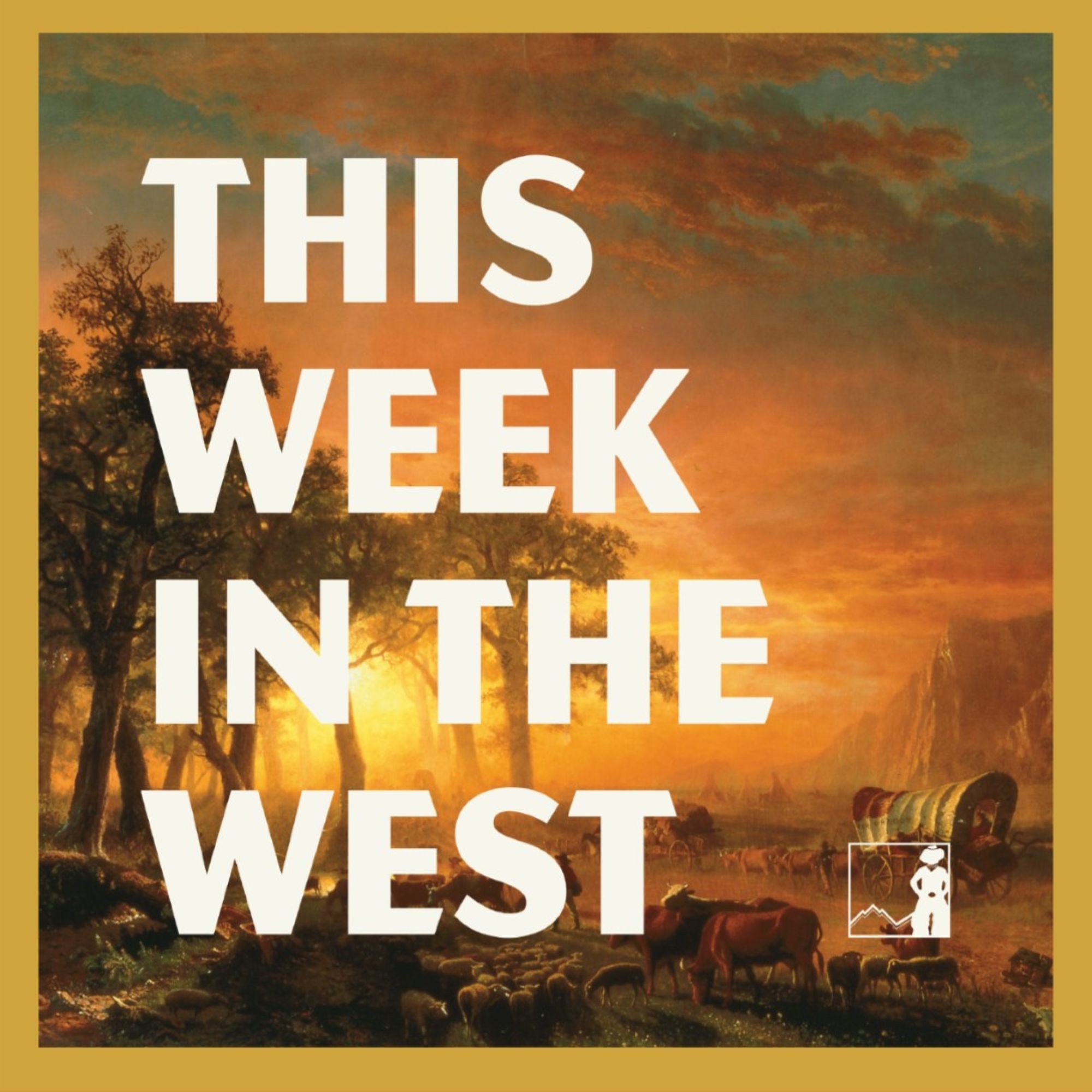
Wild West Podcast
Welcome to the Wild West podcast, where fact and legend merge. We present the true accounts of individuals who settled in towns built out of hunger for money, regulated by fast guns, who walked on both sides of the law, patrolling, investing in, and regulating the brothels, saloons, and gambling houses. These are stories of the men who made the history of the Old West come alive - bringing with them the birth of legends, brought to order by a six-gun and laid to rest with their boots on. Join us as we take you back in history to the legends of the Wild West. You can support our show by subscribing to Exclusive access to premium content at Wild West Podcast + https://www.buzzsprout.com/64094/subscribe or just buy us a cup of coffee at https://buymeacoffee.com/wildwestpodcast
Wild West Podcast
Entrepreneurship and Expansion in the Old West: George M Hoover's Astonishing Journey from Bar Owner to Dodge City Mayor
Join us as we travel back to the lawless days of the Old West, and meet the pioneering figure who helped shape its future. Ever wondered how a simple bar could spark the birth and growth of an infamous city? We uncover the fascinating life of George M Hoover, the man who did just that and so much more.
We're taking you on a vivid journey to the frontier, where we unveil Hoover’s entrepreneurial spirit and his role in Dodge City's infancy. Tune in to learn about his intriguing journey from setting up a bar just outside the military boundary of Fort Dodge to becoming the city’s first elected mayor. And it doesn’t stop there - we'll also reveal how Hoover's legacy transcended his lifetime, manifesting in his significant contributions to the city's development and his philanthropic initiatives. Don’t miss this captivating exploration of one man's indelible mark on the canvas of American history.
by 1872, fort dodge, which was established in 1865. By 1872, Fort Dodge, which was established in 1865, was not only a place for US Army soldiers, but it was also a trading post and a meeting place for traders along the Santa Fe Trail and for the Buffalo Hunters. People bought supplies at the post store or settler's store. The store was also a popular spot for the drinking of alcoholic beverages. Apparently, the drinking got out of hand and the commandant to Fort Dodge, Colonel Richard Dodge, allowed drinking only for the officers, which essentially stopped the sale of alcohol at the Fort. This prompted a businessman, George Hoover, to take a wagon to Kansas City, fill it with a load of bott whiskey and bring it to the minimum distance allowed from the Fort, which was five miles Supposedly. He tied a rag to a wagon wheel and figured out the distance by counting the number of rotations on the wheel multiplied by the diameter of the wheel. Here he built a sod store and bar. Other businesses followed and the rest is history. He started the very first business in Dodge City when he opened a watering hole for the soldiers, Buffalo Hunters and traders that had been denied the use of Fort Dodge's saloon. George M Hoover was a French-Canadian born on August 8, 1847. He first came to western Kansas, arriving in the town of Ellsworth in 1871. At the time, Fort Dodge sat on a much larger military reservation. The western border of the reservation was five miles from the Fort itself. On June 17, 1872, he and business partner Jack McConnell set up a sod and wood plank bar just outside those five miles south of the future site of the AT&SF railroad tracks. Soon, other businesses followed, and Hoover was among the group of men that christened the fledgling town as Buffalo City, a name that was changed to Dodge City when they applied for a US post office. There already was a Buffalo Kansas. Hoover's sod bar eventually moved to the north side of the tracks and became a wholesale liquor outlet, which expanded into Texas and Indian territory. Ironically, Hoover was one of the first Dodge City businessmen who honored Kansas prohibition when it went into effect in 1881. Dodge Cityans chose Hoover as their first elected mayor in 1876, succeeding P L Beatty who had been appointed. He was mayor four separate times and was elected twice to the state legislature. He also served as county commissioner several times. Hoover opened a private bank in 1892. In 1898, along with fellow businessmen, he established the state bank of Dodge City which is now Fidelity State Bank. He was president of the bank at the time of his death.
Speaker 1:George M Hoover died on July 15, 1914, just shy of his 67th birthday. His wife, Margaret Carnahan who he had married in 1876, had died a few months earlier, in March. Hoover is buried in Maple Grove Cemetery alongside his wife. George Hoover left a legacy when his estate gave the city of Dodge City over $90,000. Many from this fund went to beautification of Dodge City's parks and cemeteries. In addition to these funds, he left $10,000 to build the Hoover Pavilion in Wright Park. His moneys enabled the city to buy the municipal airport in the 1940s. George M Hoover was an Episcopalian, but in his will he gave $1,000 each to the Catholic, Caspitarian, Methodist, Christian, Episcopal and Baptist churches.
Podcasts we love
Check out these other fine podcasts recommended by us, not an algorithm.
